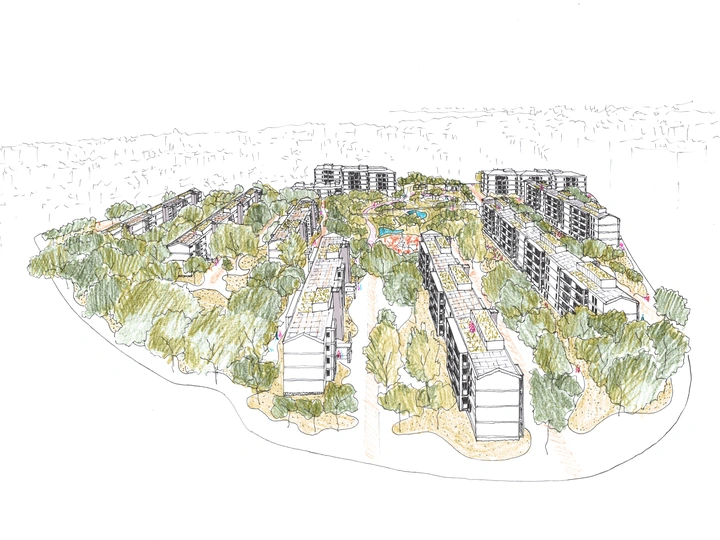modernist neighborhoods: adapt to preserve

Adriano Niel is an portuguese architect and researcher. He graduated with a MA in Architecture from the Faculty of Architecture of the University of Lisbon in 2016 with an exchange year in Prague. He worked at Aires Mateus from 2018 to 2021 and collaborated with other portuguese emergent architecture studios. Founded NIEL-A, an architecture practice based in Lisbon that operates in a triade between art, landscape and construction seeking an architecture that can be absorbed by nature. Was awarded with the 2nd prize at the International Public Competition for the Requalification of Martim Moniz square in Lisbon and received an honorable mention at the International Public Competition for the Serreta Viewpoint in Azores in 2022. In parallel to architectural practice his writings and research projects have been published in magazines and journals both in Portugal and abroad. Received an honorable mention at the 17th edition of Fernando Távora Prize and won a research project grant with the project uma casa não é uma caixa at the Young Talent Program from Cascais Municipality in 2021.
There are many high-quality modernist housing neighborhoods around the world that play a fundamental role in the history of architecture and urbanism and it’s crucial to preserve them. Protecting this heritage cannot be based on a static attitude of mere conservation or restoration, but rather on a dynamic and transformative one so that they can continue to serve their purpose of housing life. Modernist neighborhoods need to be rethought in light of the development of societies, oriented towards urban models based on ecology, sustainability and self-sufficiency. With the urgency of climate action emerged an abundance of direct financial support to citizens for acquiring gadgets that improve house energy efficiency. It became evident the lack of policies for their correct integration and as a result there is a tendency towards anarchy. If the objective is noble, the result can be disastrous.
This project takes as case study the Bairro das Caixas (1957-1962) in Cascais, a major work by Ruy Jervis d'Athouguia. In late 2020 I moved to a flat in the neighborhood and started to realize the state of degradation and adulteration compared to the original. This project started in 2021, when I won a grant at a young talent program from the municipality to develop an investigation project that aimed to collect and catalog archival documentation, transpose to digital format, characterize the current state and make a population survey. All this information has been published on a digital archive website.
Now, the second phase of the project aims to develop methods of intervention on site, combining the participation of the local community and local political power, seeking to combine its preservation with its modernization and adaptation to new ecological, sustainable and self-sufficient urban models, without losing identity. The only way to preserve a modernist neighborhood is to adapt them to a new ecological vision for the living future.